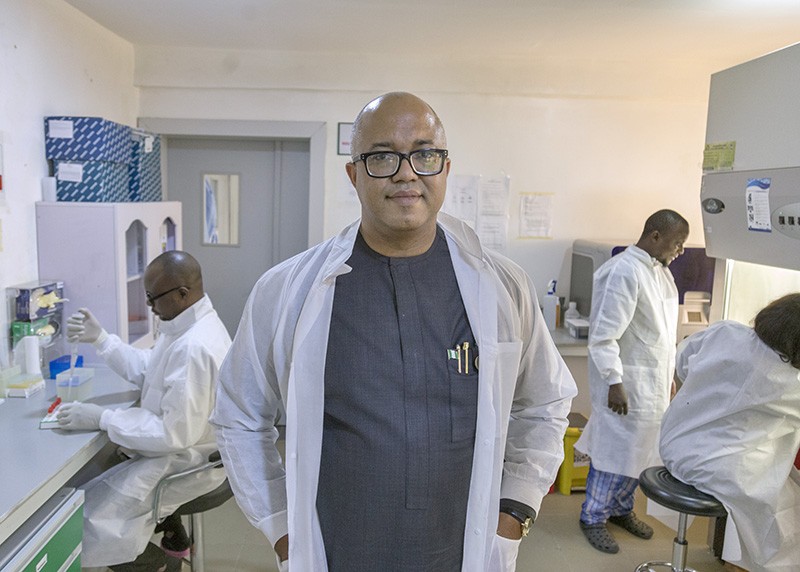
A global research meeting was co-chaired by a Nigerian expert to contribute to the local and global response to the new coronavirus outbreak.
The Director-General of the Nigeria Centre for Disease Control (NCDC), Dr. Chikwe Ihekweazu, chaired the second day of a high-level global meeting convened by the World Health Organisation (WHO) to agree on the research priorities to contain the spread of novel coronavirus (COVID-19).
This high-level meeting held in the WHO Headquarters, was convened by the Director General of the WHO, Dr. Tedros Adhanom Ghebreyesus, and co-hosted in collaboration with GloPID-R, the Global Research Collaboration for Infectious Disease Preparedness.
The meeting brought together major research funders and over 300 scientists and researchers from a large variety of disciplines.
At the meeting, the experts concluded that much was still not known about this disease and how to control it.
“Gaps and priorities were discussed and agreed, including in areas such as how best to diagnose the disease, the development of new treatment, ethical implications of the research, regulations, the role of epidemiology and social sciences and ultimately how to develop a vaccine to prevent the disease.
“Particular emphasis was placed on the need for any new technologies or approaches to be available to low- and middle- income countries such as Nigeria, who have the least capacity and resources to respond to a pandemic.”
The experts also outlined mechanisms for continuing scientific interactions and collaborations beyond the meeting, which will be coordinated and facilitated by WHO.
They worked with research funders to determine how necessary resources can be mobilised so that critical research can start immediately.
The deliberations will form the basis of a research and innovation roadmap charting all the research needed and this will be used by researchers and funders to accelerate the research response.
The meeting resolved that research to contain an epidemic requires the collaboration of basic and social scientists from different fields, affected communities and support and coordination by governments and international organisations.
It was also noted that Nigeria, the most populous nation in Africa, has an important role to play in all aspects of the response and the research needed.
This will place the nation well in terms of coping with any emerging threat as well as supporting the country’s neighbours.
WHO Director-General, Dr. Tedros Adhanom Ghebreyesus, said: “This outbreak is a test of solidarity — political, financial and scientific. We need to come together to fight a common enemy that does not respect borders, ensure that we have the resources necessary to bring this outbreak to an end and bring our best science to the forefront to find shared answers to shared problems. Research is an integral part of the outbreak response.”
“I appreciate the positive response of the research community to join us at short notice and come up with concrete plans and commitment to work together.”
This week also saw the first case of the dreaded Corona virus disease diagnosed in Egypt.
The new coronavirus disease, which emerged in Wuhan China and is spreading globally, is fortunately less fatal than SARS but seems to be more easily transmitted. Nigeria’s response, led by the Federal Ministry of Health and NCDC, has built on earlier work such as the Field Epidemiology Training Programme, improvements in surveillance using a new national system (SORMAS) and the successful response to the West African Ebola outbreak.
The devastating impact of previous pandemics on lives and the economy of countries has highlighted the need for better preparedness.
While there is still yet to be a single case of COVID-19 in Nigeria, the leadership demonstrated to date by the health ministry and NCDC is the direction needed to prepare for future health epidemics and needs replicating across the health sector.

